Science Journalism Fellowship
The Science Journalism Fellowship is an annual competition open to professional journalists interested in geoscience stories. The fellowships enable reporters to follow scientists on location to report on ongoing research in the Earth, planetary or space sciences. Successful applicants receive up to €5000 to cover expenses related to their projects.
EGU Science Journalism Fellowships differ from other science journalism prizes. Rather than awarding a published piece of science reporting, the EGU funds innovative proposals to report on geoscientific research not yet in the public sphere. The award offers journalists the opportunity to follow geoscientists on location and to develop an in-depth understanding of their research questions, approaches, findings and motivation. The aim of the fellowship is to promote excellence in geoscience reporting. Starting in 2022, the call for applications takes place mid March through mid-June each year, with the winners announced in September.
Applications are judged by a panel of geoscientists, journalists and communication professionals. In the first round of judging all applications are reviewed anonymously while, in the second round, the shortlisted proposals are evaluated together with the candidates' summary of experience. Panel members with a perceived conflict of interest with a specific application are not involved in the review of that application. In these cases, additional reviews might be sought out.
SPECIAL NOTICE: To show our support for Ukraine and in accordance with current European sanctions, EGU will not provide any payments to applicants from Russian or Belarusian institutions – as a result anyone from a Russian or Belarusian institution is not eligible to apply for this fellowship in 2025.
For more information on the fellowship, please check the most recent competition announcement or contact:

Past and present fellows
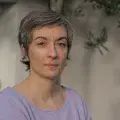


Cécile Dumas, Aisling Irwin and Tim Kalvelage
2020
- La quête du clou d'or de l’Anthropocène (Heidi.news), by Cécile Dumas
- Anthropocène : à la recherche du clou d’or (le blob), by Cécile Dumas

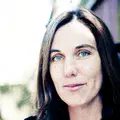
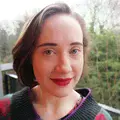
Katherine Kornei, Martha Henriques and Virginia Gewin
2019
- The landslide laboratory (Science), by Katherine Kornei
- Building a landslide observatory - podcast (Science), by Sarah Crespi and Katherine Kornei
- Taking the pulse of an extreme landscape (GeoLog), by Katherine Kornei
- Citizen scientists track how plastic pollution impacts birds (Yes!), by Virginia Gewin
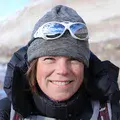

Julia Rosen and Vivien Cumming
2018
- The rivers that help balance our climate (BBC Earth), by Vivien Cumming
- Flowing Carbon (University of Cambridge), by Vivien Cumming
- Farmers are facing a phosphorus crisis. The solution starts with soil. (National Geographic), by Julia Rosen
- Humanity Is Flushing Away One of Life’s Essential Elements (The Atlantic), by Julia Rosen

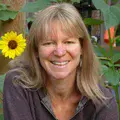
Jane Qiu and Jane Palmer
2017
- Ecologists debate whether climate change helps or hurts reindeer (The Economist), by Jane Qiu
- Creeping earth could hold secret to deadly landslides (Nature), by Jane Palmer
- Ice on the run (Science), by Jane Qiu
- Creeping danger: Landslide threatens Peruvian village, especially when the earth quakes (EARTH magazine), by Jane Palmer
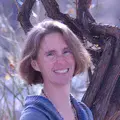
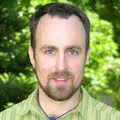
Terri Cook and Phil McKenna
2016
- Artificial floods: Restoring the ecological integrity of rivers (GeoLog, the EGU blog), by Terri Cook
- Open the floodgates: Designer deluges could save dammed rivers (New Scientist), by Terri Cook
- Seismic Cloak Successfully Deflects Earthquake Waves (NOVA | PBS), by Phil McKenna

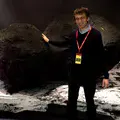
Mason Inman and Karl Urban
2015
- Can fracking power Europe? (Nature), by Mason Inman
- Island spielt mit Magma (Deutschlandfunk), by Karl Urban
- Vorbereiten auf Islands Gluthitze (Deutschlandfunk), by Karl Urban
- Das heisseste Bohrloch der Welt (Neue Zürcher Zeitung), by Karl Urban
- Das heißeste Bohrloch der Welt (Der Tagesspiegel), by Karl Urban
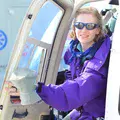
Chelsea Wald
2014
- Forensic science: The soil sleuth (Nature), by Chelsea Wald
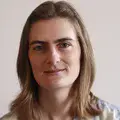
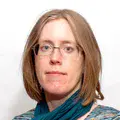
Kate Ravilious and Liz Kalaugher
2013
- Kathmandu's earthquake nightmare (Cosmos), by Kate Ravilious
- Forecasting the fate of Arctic flora (Physics World), by Liz Kalaugher
- Arctic alpine plants may survive in 'micro refuges' as temperatures rise (The Guardian), by Liz Kalaugher
- Blog series: Vegetation research at Kilpisjärvi (Environmentalresearchweb), by Liz Kalaugher
- Sniffing out signs of an earthquake (GeoLog, the EGU blog), by Kate Ravilious
- People power (GeoLog, the EGU blog), by Kate Ravilious
- Vegetation research in Finnish Lapland: mountains, sunshine and reindeer (GeoLog, the EGU blog), by Liz Kalaugher
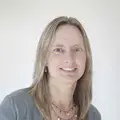

Alex Witze and Jane Qiu
2012
- An Island on Fire: The extraordinary story of Laki, the volcano that turned eighteenth-century Europe dark (Profile Books), by Alexandra Witze & Jeff Kanipe
- Mariners of the Lost Sea (Science), by Jane Qiu
- Pollutants Capture the High Ground in the Himalayas (Science), by Jane Qiu
- Hunting Laki (GeoLog, the EGU blog), by Alexandra Witze
- A sky-high view on pollution in the Himalayas (GeoLog, the EGU blog), by Jane Qiu
